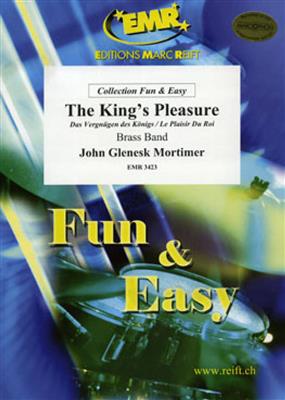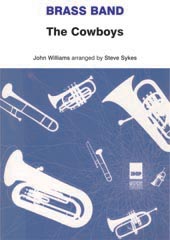Results
-
£54.99
Pleasure for Band - Kees Schoonenbeek
As the title suggests Pleasure for Band is a pleasant composition it is based in five equal parts. The first movement makes use of A-B-A form, with the A theme having a bright joyous character and the B theme having a contrasting more lyrical feel. This work will make an idea encore for any concert.
Estimated dispatch 5-14 working days
-
 £54.99
£54.99Pleasure for Band (Brass Band - Score and Parts)
As the title suggests Pleasure for Band is a pleasant composition it is based in five equal parts. The first movement makes use of A-B-A form, with the A theme having a bright joyous character and the B theme having a contrasting more lyrical feel. This work will make an idea encore for any concert.
Estimated dispatch 7-14 working days
-
 £70.00
£70.00 -
 £116.10
£116.10Accordion Pleasure (Accordion Solo) - Norman Tailor
Estimated dispatch 5-14 working days
-
 £92.00
£92.00A Trumpeter's Pleasure (Cornet Solo) - Hanspeter Kübler
Estimated dispatch 5-14 working days
-
 £108.10
£108.10The King's Pleasure - John Glenesk Mortimer
Estimated dispatch 5-14 working days
-
 £38.60
£38.60PLEASURE TRAIN POLKA - Strauss Johann Jr. - Fraser Bruce
Estimated dispatch 7-14 working days
-
 £19.60
£19.60PLEASURE TRAIN POLKA (Partitur/Score) - Strauss Johann Jr. - Fraser Bruce
Estimated dispatch 7-14 working days
-
£24.50
O Holy Night - Adolph Adam - Stephen Tighe
Arranged for the full band, this timeless classic has something for every player. The arrangement builds all the time to a gorgeous climax, and has an intricate part for the Vibraphone (although this is covered around the band if unavailable). A simple, yet effective arrangement and a pleasure to listen to.
In Stock: Estimated dispatch 1-3 working days
-
£55.00
The Cowboys (Score & Parts) - John Williams
In a career that's spanned over five decades, composer John Williams has scored fewer than five Westerns which, judging from his exemplary work on this 1972 score The Cowboys, seems something of a shame. Williams offers up a robust, brassy score that the composer hopes 'people will find genuine pleasure in'. Brass Band Grade 5: 1st Section Duration: 6 minutes
In Stock: Estimated dispatch 1-3 working days

